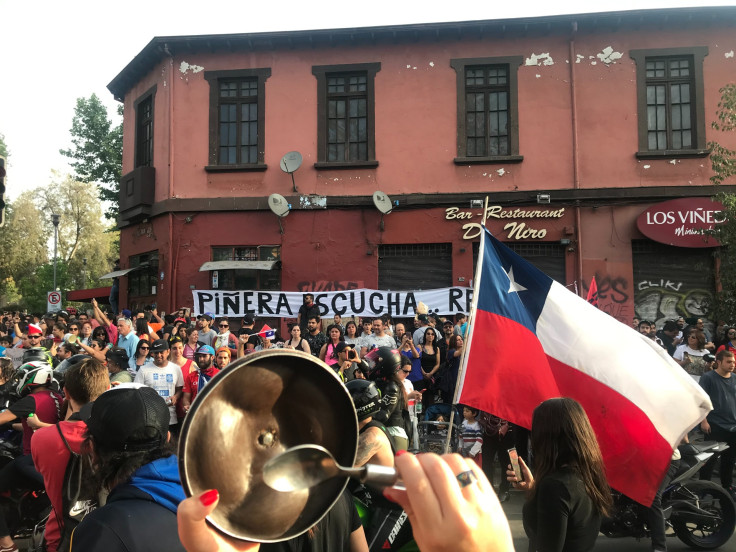Continued frustration from the rejection of the new draft constitution has prompted many student activists to continue their protests in Chile on Tuesday, as a month closes in since clashes between the government and protesters began anew.
Many students continue to be frustrated at the Chilean government as the new draft Constitution was rejected by 62% of the country in the Sept. 4 vote. With what they perceive as failures of the Chilean government in front of them, many have gone to the streets to express their discontent regarding it, according to The Guardian.
“The demands we have now are the same as when the protests started in 2019,” 18-year-old activist Camila Navarro said. “We want better healthcare and education, and we want to tackle inequality. Our demands haven’t changed for one simple reason: they haven’t remotely been answered.”
Most of the protests by the students are centered around the educational system, with many railing against the semi-private model adopted by schools, and others calling out the Catholic values taught in them that are seen as archaic, sexist, and patriarchal.
“Schools are run like businesses, and we need to put students first, not profit,” Navarro said.
Chile was encumbered by a series of protests in 2019 largely due to the economic inequality in the country. Progressive politicians attempted to address the situation through a new Constitution different from the Pinochet-era one, but this was soundly rejected by the majority of voters this year despite support from President Gabriel Boric.
“These protests are different to typical student demonstrations – they’re far more visceral and anarchic,” assistant professor in sociology Sofía Donoso said. “The current trend among the demonstrators is against political parties, which makes it hard to channel, but these student movements have shaped Chilean politics in recent years.”
Just this October, on the third anniversary of the original clashes in 2019, riots happened in the city of Santiago where protesters lit fires and threw rocks at police officers, who responded with gas and water cannons against the protests. Boric himself has condemned the violence in the protests, saying that the police had the government’s “full support to fight crime and assure public order,” Reuters reported.
“We are a government that is open to dialogue, but we have repeatedly condemned the violence,” educational minister Marco Antonio Ávila said.
Despite this, Chile’s government remains open to the protesters’ demands for change, and Boric has ensured the public that his commitment to battling inequality remains steadfast.
“The social unrest expressed - and brought - a lot of pain and has left huge consequences,” he said. “We will not allow it to be in vain, we cannot be the same as a society after this experience, we cannot make the same mistakes.”

© 2025 Latin Times. All rights reserved. Do not reproduce without permission.





